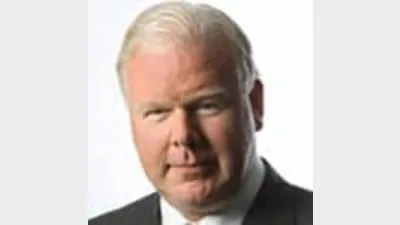ANZ remains watchful despite solid profit result



ANZ has turned in a solid profit in still volatile markets, reporting a 10 per cent increase in net profit to $2.919 billion for the six months to the end of March.
ANZ chief executive Mike Smith attributed the result to the benefits of the big banking group's so-called super regional strategy, saying there were good results from outside of Australia.
"In Australia, we made market share gains and customer satisfaction remained strong," he said. "Our financial performance however was subdued, significantly impacted by declining margins and the structural shift that's occurred since the financial crisis, with persistently lower demand for credit."
Smith said these challenges were now an ongoing part of the Australian banking landscape and ANZ was "now making progress with the decisions needed to reshape our business for the future".
However, drilling down on the result, the ANZ announcement to the Australian Securities Exchange revealed the company's wealth division was continuing to struggle in the more difficult market conditions.
It said that wealth profit was down nine per cent, reflecting market conditions and negative investor sentiment due to volatile equity markets.
However it said funds under management had grown by four per cent during the period, while good growth in insurance income had been offset by adverse claims and life lapse rate experience.
Reflecting on the result and the immediate outlook, Smith said that the environment had changed permanently following the financial crisis.
"In the near term we are managing in what could be described as 'work out' phase in the global economy with the situation most acute in Europe and, to be realistic, this will continue to cause volatility in global markets for many years," he said.
Smith said this had created major challenges for the business, which had been reflected in ANZ's recent decisions on both interest rates and employment within the group.
"Clearly though, we need to work harder to find ways of responding to customer and community concerns about banking, and to the changes that have been brought upon the banking sector by this environment," he said.
The company flagged rewarding shareholders with an interim dividend of 66 cents.
Recommended for you
In this episode of Relative Return Insider, host Keith Ford and AMP chief economist Shane Oliver discuss the latest shock consumer price index numbers, which rose to 3.8 per cent in October, as well as the shifting US market and calls for super funds to invest in infrastructure projects.
In this episode of Relative Return Insider, host Keith Ford and AMP chief economist Shane Oliver discuss the Reserve Bank of Australia’s cautious stance in response to persistent inflation, subdued growth prospects, and political shifts affecting the nation’s journey towards net zero emissions.
In this episode of Relative Return, host Laura Dew speaks with Rachel White, head of financial adviser services at Vanguard about how advisers can help Australians to feel confident in retirement.
In this episode of Relative Return Insider, host Keith Ford and AMP deputy chief economist Diana Mousina take a look at the Reserve Bank’s unanimous decision to leave rates on hold on Melbourne Cup Day and whether future cuts are still on the cards.








